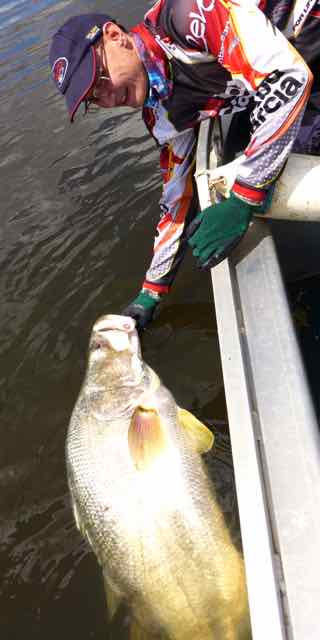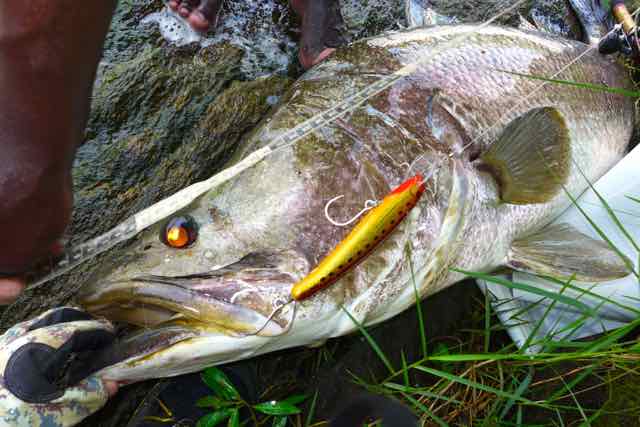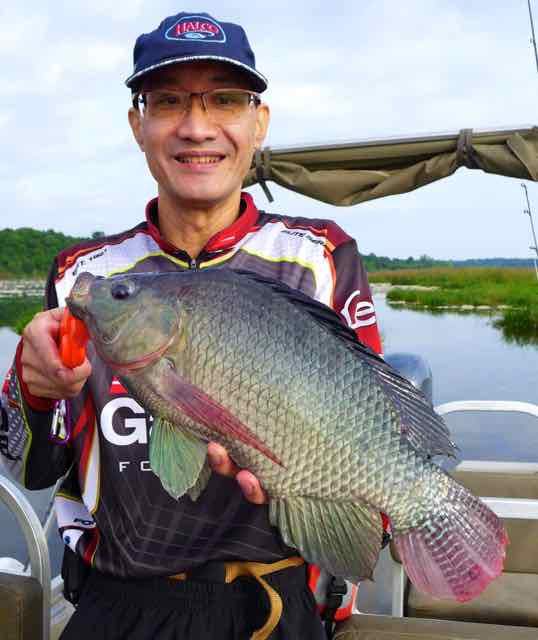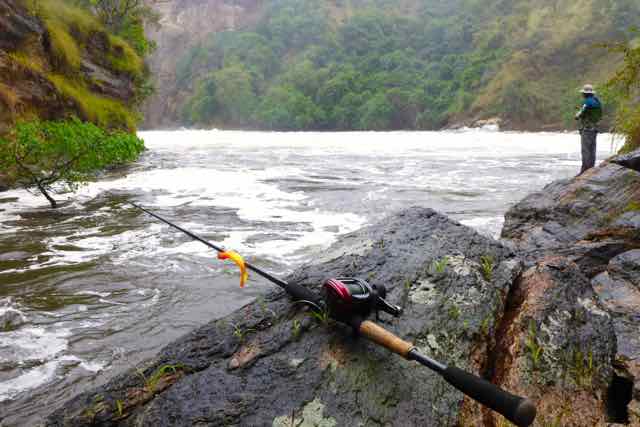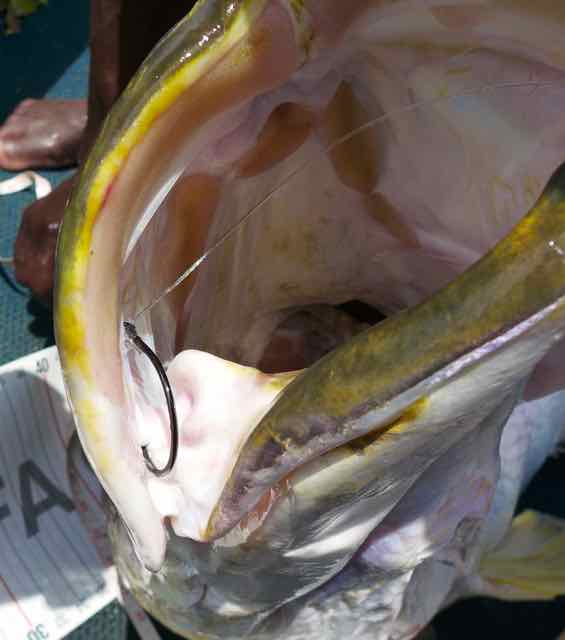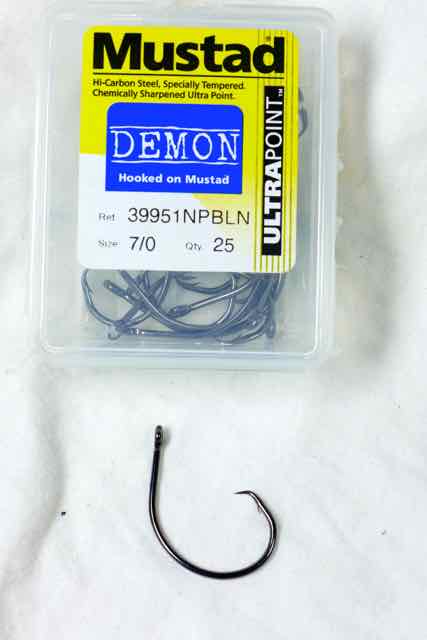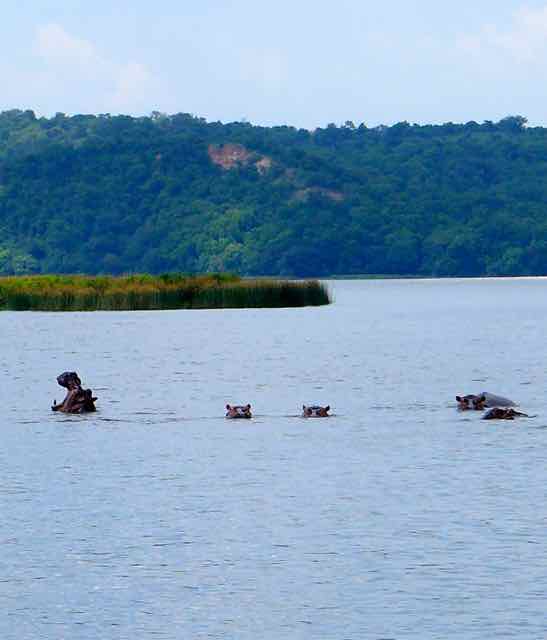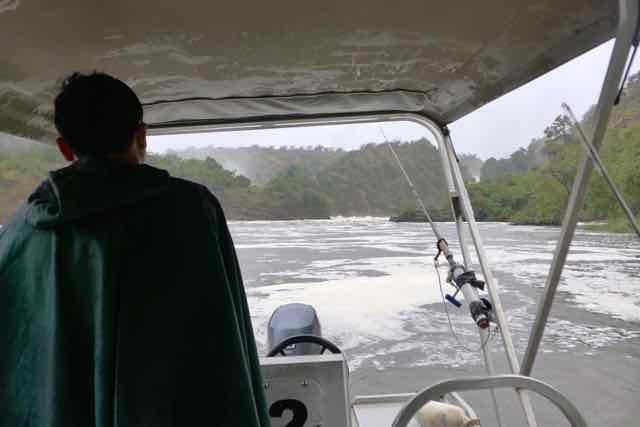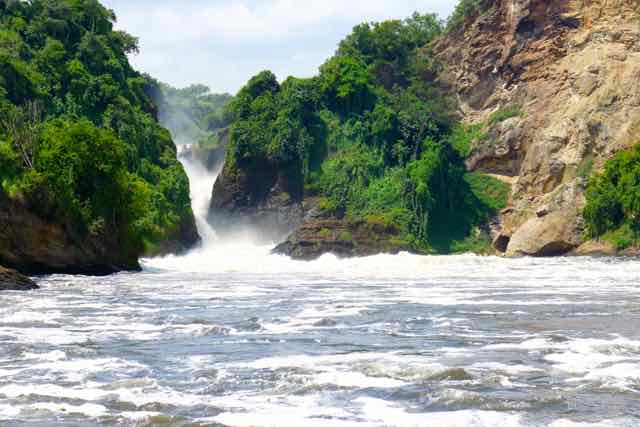
Baitfishing
for Nile Perch (Lates niloticus) at Murchison
Falls, Uganda, Africa
By Christopher S.G. Tan
There are basically two methods of baitfishing done here. One is placing the livebait a metre or two below a balloon or float and drifting it out in the current. This method is used in the gorge when fishing over rocky terrain. The balloon keeps the fish above the snaggy bottom and prevents them from fouling up.
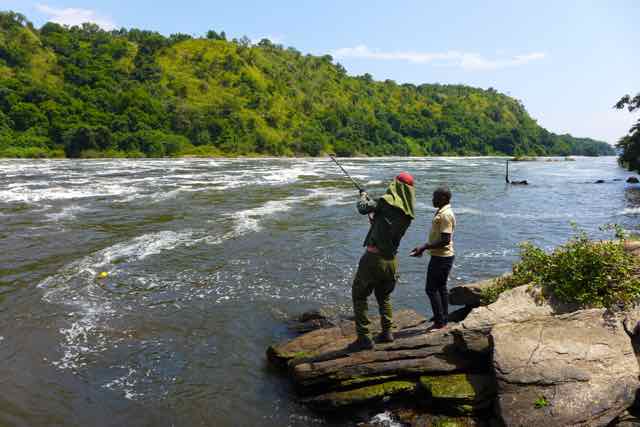
The bait/balloon is cast out and will drift with the current and then swing to the side once the line is no longer released. The idea is to get the bait into an eddy where it will move around that eddy. Sometimes the movement of the eddy is quite large and the line will need to be managed. As the bait/balloon swings back, the line will need to be retrieved, and as the bait/balloon goes out again, the line will be released tension-free to keep the bait out in that eddy.
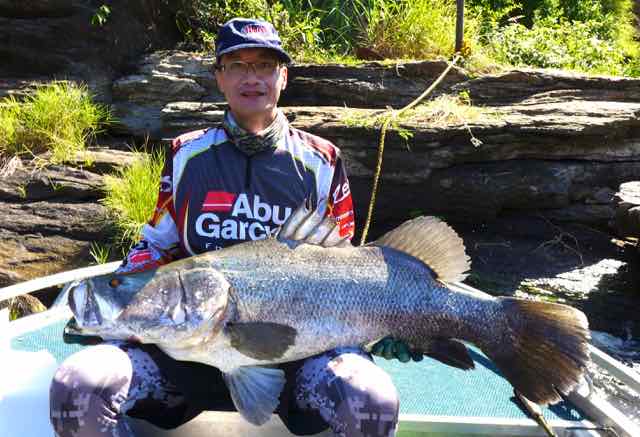
Outside the gorge or the lower section of the gorge where the riverbed is sandy, silty or muddy, the livebait is fished using a running ledger rig. The running sinker stops at a swivel tied to a leader of about a metre long to the hook.
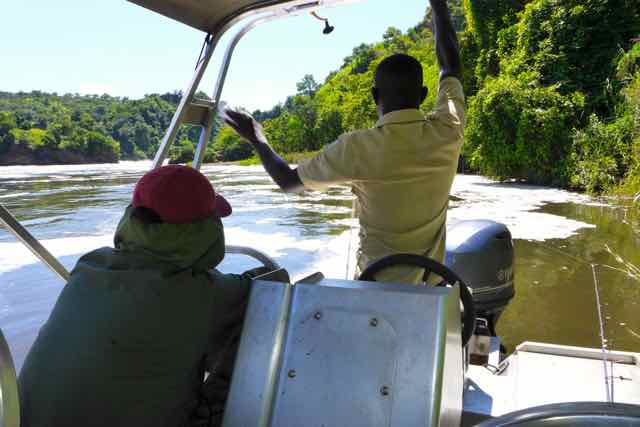
The use of non-offset circle hooks is preferred. This ensures that the fish is hooked up at the corner of the jaw. Offset circle hooks often snag up in the throat or even deeper, which is not good for this catch-and-release fishery. I used the Mustad 39951 circle hook which is a wide gap in-line (non-offset) circle hook.
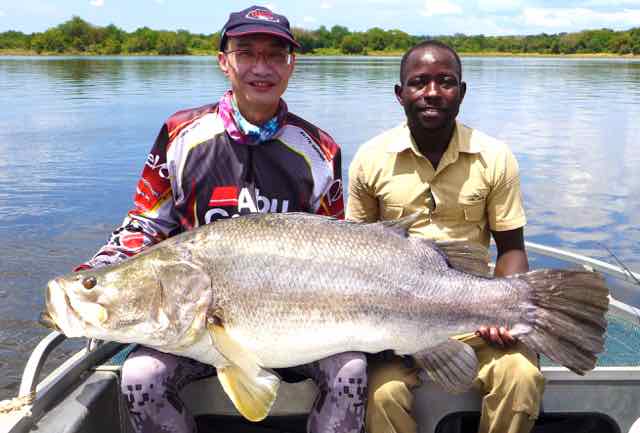
The minimum size should be 7/0 or 8/0 for this model. The smaller sizes of this model have wire thicknesses that are too small in diameter and will open up under heavy pressure. The use of circle hooks require a different method of setting the hook from that used for the traditional J shaped hooks. Take a look here to learn how to use circle hooks.
The bait is placed using the boat. The skipper will decide where he wants the bait placed and get the anglers to drop the bait in turn and release the line, staggering the bait distance from the boat. He drives the boat upstream and diagonally towards the bank and beaches the prow of the boat. Occasionally at shallow flats we would anchor just off the bank instead of beaching the prow of the boat.
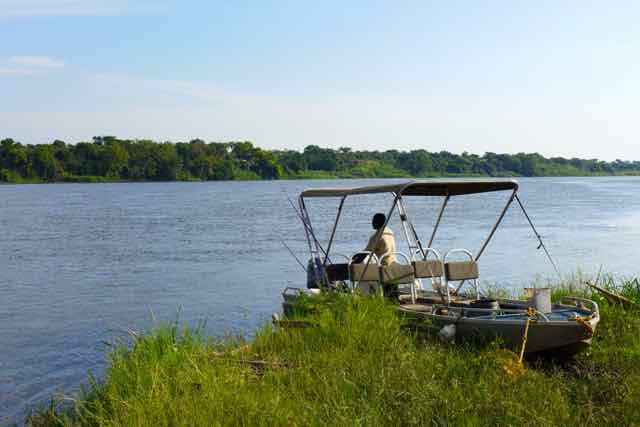
He directs the anglers to stop releasing the line simultaneously. The river current will then drag the bait and line closer to the bank, after which, depending on the sinker weight, line diameter and current strength, the bait will find a resting place.
Below
the
gorge the river broadens out and water flow slows down, and
as I looked at the broad river, I realised that I would not
know where to find the Nile perch in the immense and broad
White Nile river! But the guides know where to find the Nile
perch.
For instance there are shallow flats just downstream of a bloat of hippopotamuses where we would drop our bait. Supposedly, the riverbed getting stirred up and the defecation of the hippos would attract the baitfish downstream of the hippos and this in turn brings in the Nile perch hunting for prey.
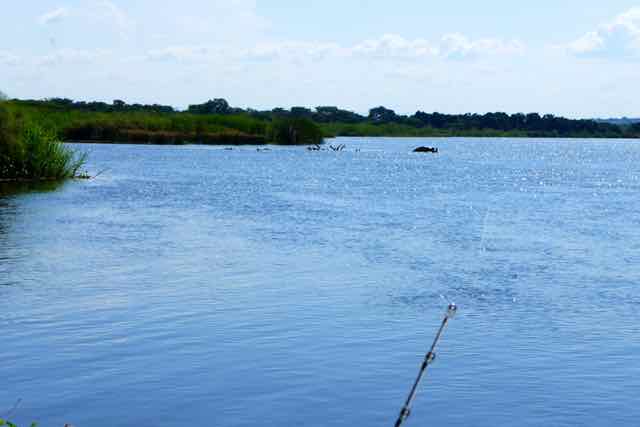
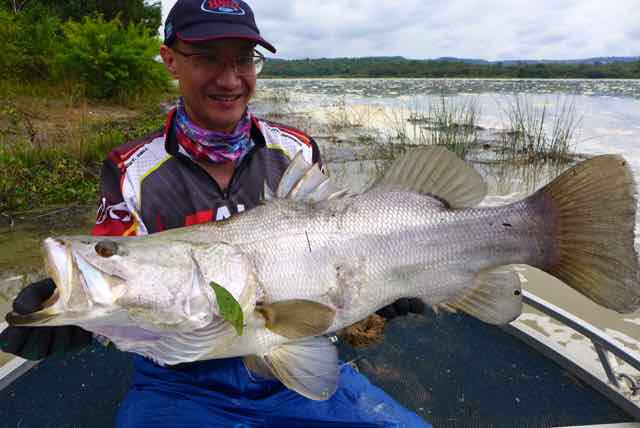
The changes in water levels and current flow due to the amount of rainfall and season also change the fish holding choices. A place which has fish during the low water might not have fish when there's high water. The high-water also see fewer hippos in the water as the water is a lot deeper in more sections of the river.
Other links:-
The
Tackle
for Nile perch - rods, reels, lines, leaders and terminal
tackle.
Conservation
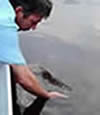
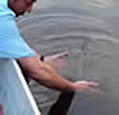
We need to protect and conserve our resources by practising catch and release of our sportfish and protecting the habitat of our fishes.
